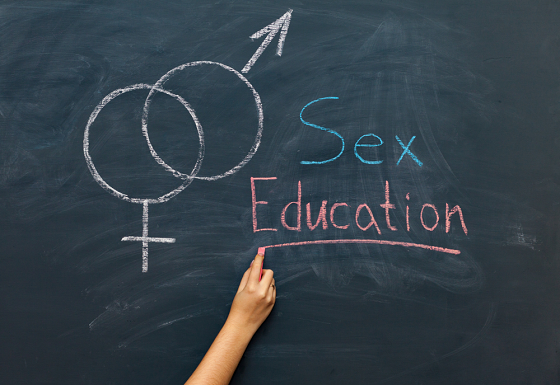
Is sexuality education all about sex?
What comes to mind when you hear the term ‘sexuality education?’
If, the first, and sometimes only thing, that comes to your mind is sex. My guess is that you think about sex a lot (hope you’re getting some though) thus the assumption.
But, is that what it’s all about?
What exactly is Comprehensive Sexuality Education commonly abbreviated as CSE?
Comprehensive sexuality education is the provision of important information to young people to support their journey from childhood to adulthood as well as equip them with knowledge, attitudes, skills, and values that enables them to make appropriate and healthy sexual choices in their lives.
At this point, let’s end the suspicion towards sex education. It’s not all about sex!
How important is sexuality education?
In a world where HIV, sexually transmitted infections (STIs), unintended pregnancies (A lot!), gender-based violence (GBV), and gender inequality still pose serious risks to the health and well-being of individuals, CSE plays a critical role in preparing young people for a safe, productive, and fulfilling life.
Adolescents and young people who receive limited or no sexuality education are vulnerable to sexual exploitation and other harmful outcomes.
How does CSE prepare adolescents and young people?
CSE equips adolescents and young people with the knowledge, skills, attitudes, and values they need to determine and enjoy their sexuality and relationships.
Below are some of the key recommended topics and how they prepare young people
- Relationships
Under this topic, young people learn healthy and unhealthy relationships. They’re equipped with knowledge in understanding consent. This helps them to develop and maintain healthy friendships, boundaries and also understand how equitable roles between people can contribute to a healthy relationship.
It further provides knowledge on ways to express affection within healthy sexual relationships. It helps young people recognize that sexual behavior is not a requirement for expressing love and if affection and love are expressed it’s done in appropriate and safe ways.
- Values, Rights, Culture and Sexuality
This helps in knowing one’s own values, beliefs, and attitudes, around sexuality and how they may impact the rights of others.
As adolescents grow up, they develop their own values which may differ from their parents/ guardians or society. On this topic, they get skills on ways to resolve conflict with family members and friends due to differing values.
It enables young people to promote human rights that impact sexual and reproductive health and the right to make decisions concerning reproduction without discrimination, coercion, or violence.
It teaches the importance of developing own perspectives on sexual behavior and acquire social and cultural norms that positively influence sexual health.
- Gender
Young people learn about gender bias against men, women, and people of diverse sexual orientation and gender identity and recognize that their own and others’ gender biases may be harmful to others, therefore critically assess their level of gender bias and within their community and identify ways to counter.
- Sexual and Reproductive Health
What was the weirdest thing you heard about sex, condoms, contraception growing up? I bet it was a lot!
Young people learn about the benefits and possible side effects of available modern methods of contraception (e.g. male and female condoms, pills, injectables, implants, emergency contraception also known as P2) and recognize the importance of using contraception correctly and being able to discuss and use different contraceptive methods.
They learn about HIV prevention and appreciate that people living with HIV live full, healthy, and productive lives with treatment and support. They become champions for everyone to live free of stigma and discrimination.
Parting shot?
CSE supports adolescents in making informed decisions and protects them from conflicting and sometimes damaging messages from their peers, the media, or other sources.
Committee on the Rights of the Child recognizes the importance of sexuality education and urges countries to teach comprehensive and inclusive sexuality education, based on human rights standards, and make it part of the mandatory school curriculum, and reach out-of-school adolescents.
Over to you, do you think CSE is important? Leave a comment below or join the discussion on Facebook.
